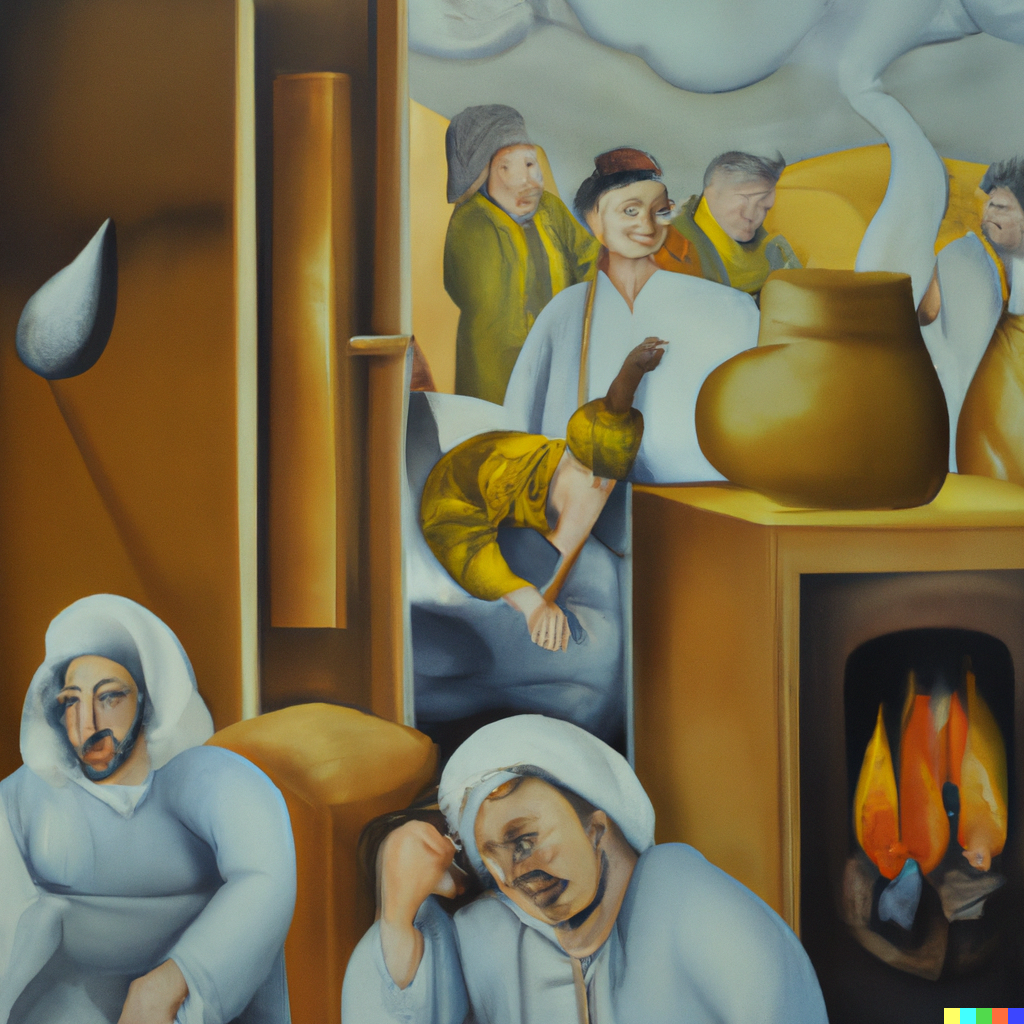I asked ChatGPT to recount the history of the Old Testament, without getting bogged down in the details — just focusing on the significant parts of the narrative. I then asked it for a creative but appropriate title for its work. I have to say, it pretty much nailed the assignment.
DALL•E kind of punted on generating an appropriate image, but hey; it’s just an AI so cut it some slack.

From Creation to Covenant: Unveiling the Tapestry of Ancient Israel
In the beginning, according to the Old Testament, God created the heavens and the earth, forming the world and everything in it. Adam and Eve, the first humans, were placed in the Garden of Eden but disobeyed God’s command and were banished from paradise.
The narrative then moves to the story of Noah and the Great Flood. God saw the wickedness of humanity and decided to cleanse the earth. Noah, a righteous man, built an ark and saved his family and pairs of animals from the floodwaters.
Next, the focus shifts to Abraham, who is considered the father of many nations. God made a covenant with Abraham, promising him descendants as numerous as the stars. Abraham’s son Isaac and his grandson Jacob continued the lineage.
Jacob’s twelve sons became the twelve tribes of Israel, and his son Joseph was sold into slavery by his brothers but rose to power in Egypt. Through a series of events, Joseph eventually saved his family and brought them to Egypt during a severe famine.
Generations later, the Israelites became enslaved in Egypt. God raised up Moses as their leader and used him to deliver the people from bondage. Through miraculous signs and wonders, God brought about the Exodus, leading the Israelites through the Red Sea and into the wilderness.
In the wilderness, God gave Moses the Ten Commandments and established a covenant with the Israelites at Mount Sinai. Moses led them on a journey towards the Promised Land, but due to disobedience and lack of faith, they wandered for forty years.
Joshua succeeded Moses as the leader, and under his command, the Israelites conquered the land of Canaan. They established themselves as a nation and settled in the Promised Land.
The Israelites went through a cycle of obedience and disobedience to God, with various judges rising to lead them during times of crisis. Eventually, they desired a king, and God anointed Saul as the first king of Israel. However, due to Saul’s disobedience, God chose David as his replacement.
David, a renowned king, established Jerusalem as the capital and desired to build a permanent dwelling place for God, but it was his son, Solomon, who built the magnificent Temple in Jerusalem.
After Solomon’s reign, the kingdom split into two: the northern kingdom of Israel and the southern kingdom of Judah. The prophets played a crucial role during this time, calling the people to repentance and warning of the consequences of their actions.
The kingdoms faced threats from various empires, leading to the exile of the northern kingdom by the Assyrians and the eventual destruction of Jerusalem and the Temple by the Babylonians. The people were taken captive to Babylon.
After seventy years, the Persians conquered Babylon and allowed the Jews to return to Jerusalem and rebuild the Temple under the leadership of figures like Ezra and Nehemiah.
The Old Testament concludes with prophecies of a coming Messiah who would bring salvation and establish an eternal kingdom. These prophecies set the stage for the events of the New Testament and the birth of Jesus Christ.